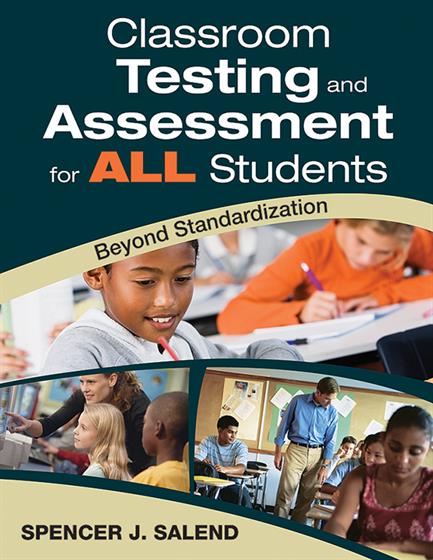Hands-on, Practical Guidance for Educators
From math,
literacy, equity, multilingual learners, and SEL, to assessment, school counseling,
and education leadership, our books are research-based and authored by experts
on topics most relevant to what educators are facing today.

Classroom Testing and Assessment for ALL Students
Beyond Standardization
Give all students an equal chance to perform well on your classroom tests and assessments!
This resource helps teachers meet and move beyond the challenges of NCLB and IDEA by using teacher-made tests, appropriate testing accommodations, technology-based testing, and classroom-based assessments to give all students the opportunity to achieve. The book offers ways for teachers to better differentiate testing and assessment through:
- Classroom and school-based examples within each chapter
- Bulleted information outlining hands-on, research-based strategies
- Forms, reproducibles, stories, vignettes, reflection questions, and checklists
- Tips on using technology to help all students perform better
Product Details
- Grade Level: K-12
- ISBN: 9781412966436
- Published By: Corwin
- Year: 2009
- Page Count: 176
- Publication date: November 10, 2009
Review Copies
This book is not available as a review copy.

